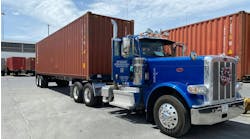The carrier also said it was seeing diversion of package volume to competitors. According to CFO Scott Davis, UPS's business began to show the effects of the unresolved labor negotiations in June.
U.S. domestic volume levels in April and May were running approximately 2% below prior-year levels, consistent with the economy's general weakness. In June, the volume decline was 4%. As a result, U.S. domestic volume for the second quarter declined 2.6%.
"We are grateful for the loyalty and confidence demonstrated by our customers," said Davis. "But we've said all along the risk of volume being diverted would increase the closer we got to contract expiration, and diversion will accelerate if there's no agreement soon. It's even more important that the company and the union conclude these negotiations in a timely manner."
The Teamsters say negotiatons remain far apart on issues such as health care and pensions. The union has said it will strike if an agreement is not reached by July 31.
Teamsters general secretary-treasurer Tom Keegel urged UPS to put forth proposals that reflect the contributions Teamsters have made to the company’s success.
“We are dealing with one of the most profitable corporations in America—this is not a company in decline,” Keegel said. “We expect proposals that protect our health coverage and our pensions.”
In 1997, negotiations continued past the contract expiration of July 31 and resulted in a 15-day strike. In 1993, a settlement was not reached until October, three months after the contract expired.


